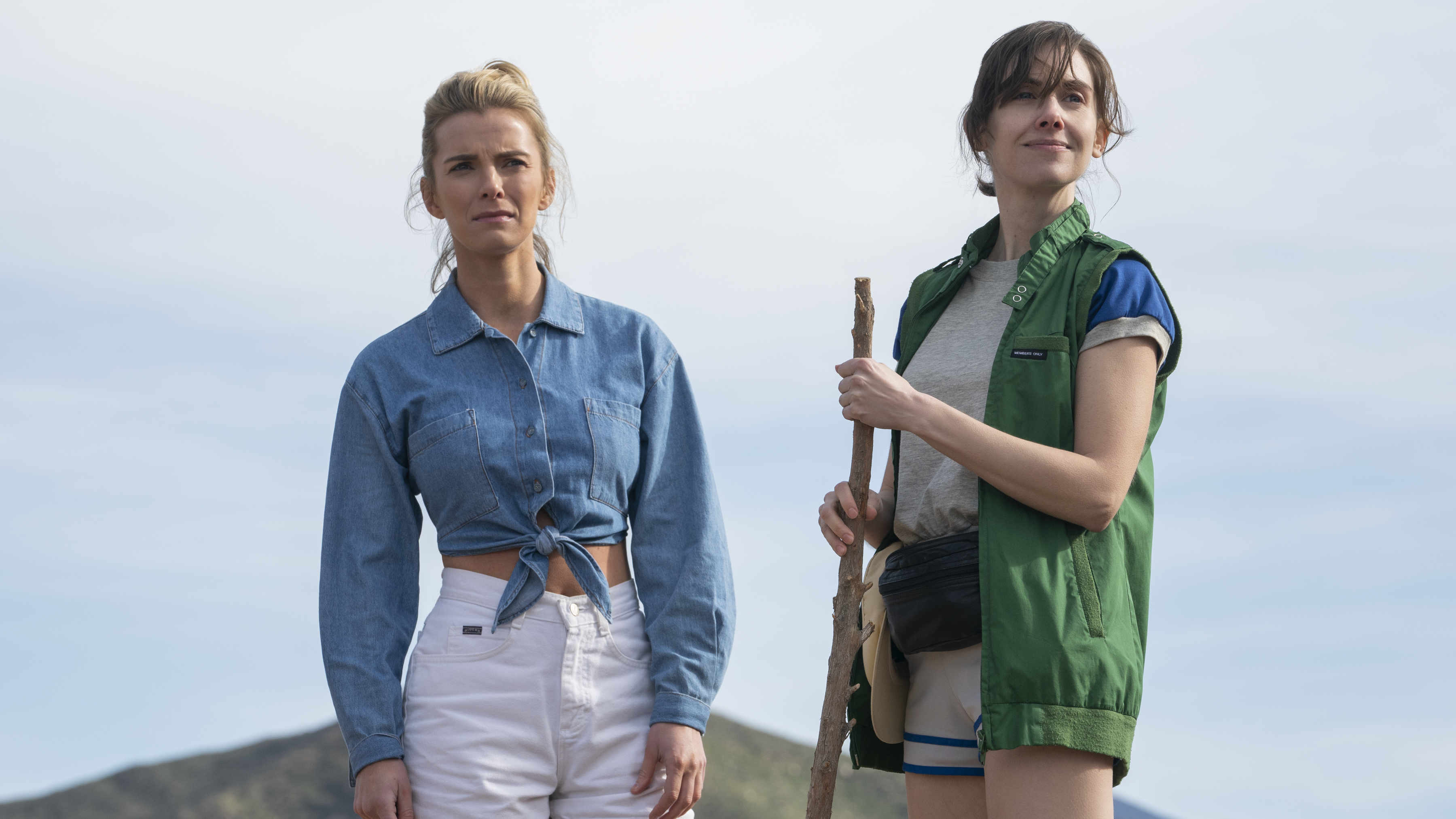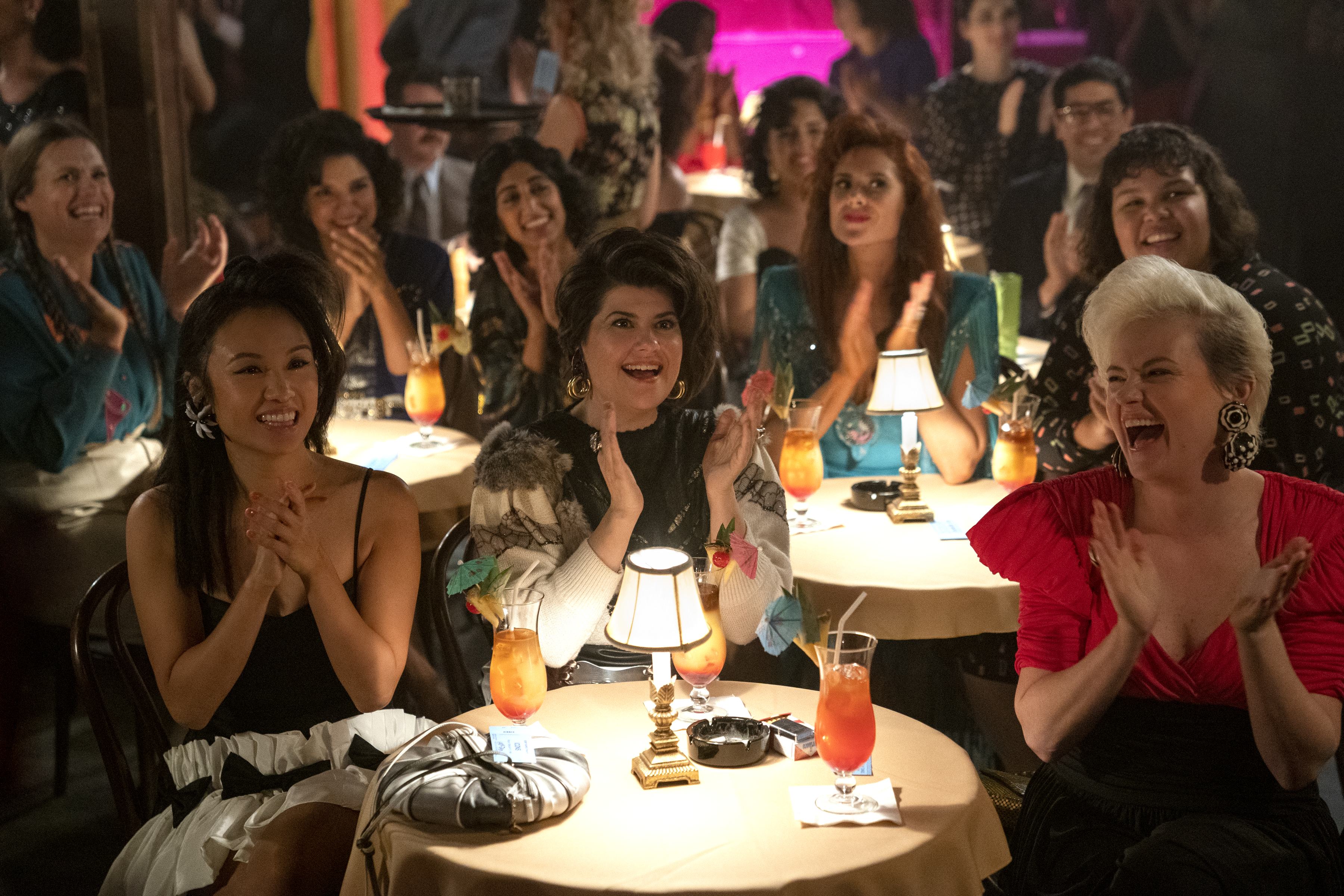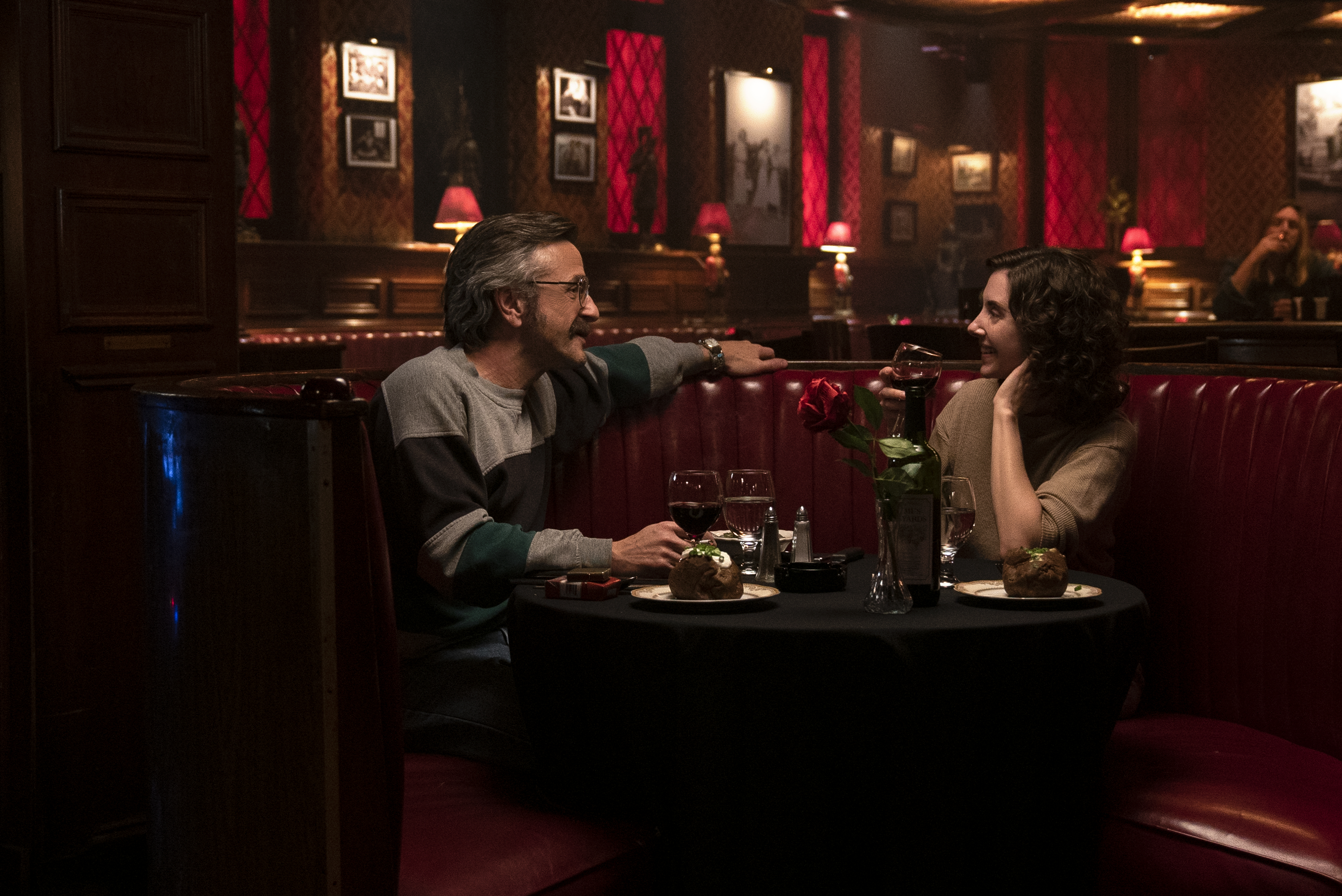Glow Season 3 Review: A Triumphant Return of One of Netflix's Best Shows
Feel the glow and all the feels too

Las Vegas — the site of the third season of Netflix's Glow — is not where you go to have a chill, fun time. This is why I'm not surprised that this season of the series feels like it's turned a corner, and entered a slightly darker, more dramatic and frankly better, era. No longer a breezy, super-easy to binge series, Glow is cementing itself as one of Netflix's top original shows.
For those unfamiliar, Glow follows an all-female troupe of pro wrestlers, who spent their first two seasons fighting for success and struggling in a male-led world that wants them to submit. And while previous seasons have seen show leads Alison Brie, Marc Maron and Betty Gilpin struggle with their personal issues, this new season naturally folds in societal concerns that make it feel even more important.
A word about spoilers
As a big fan of Glow (I've met the show-runners, plus Alison Brie put me in a headlock for a photo) I'm writing the review that I would want to read prior to sitting down for this third season. That means you don't need to worry about getting spoilers, as I personally strive to go into shows, movies and even pre-taped pro wrestling knowing as little about what I'm going to watch as possible.

Wrestling takes a back seat, and that's a good thing
Even though I'm Tom's Guide's resident pro wrestling expert, I've always appreciated that Glow was never really obsessed with the matches its characters performed, instead using it as a plot device for storylines and character development. The series always did right by wrestling, mind you, but it's so watchable, for so many, because you don't need to have ever watched Monday Night Raw, or know the difference between The Undertaker and an actual mortician, to understand and enjoy what's happening.
This trend goes even further away from the matches in Season 3, as our heroes are no longer working on their wrestling. They've mastered the basics enough so that they can keep a good audience and be a hit at their new home, the Fan-Tan Hotel and Casino in Las Vegas. Here, we get the first major new character for the season: casino owner Sandy Devereaux St. Clair. Sandy, played superbly by Geena Davis, is a survivor of Las Vegas, who doesn't care much for wrestling either.
Vegas is a grind
She's not the only example, though, as Ruth (Alison Brie) is growing tired of the grind. Las Vegas' love for repetitive shows, where there's no character development or long term story, is wearing her thin. A beautiful montage late in the season emphasizes this emotion in one of the many moments this season where I was happy to have a kleenex nearby to tidy my dusty eyelids.

As with the rest of the cast's work this season, it all ties back to Ruth's core, as she finds satisfaction as a creative artist, and never wanted to be a homebody. All in all, it's material that Brie (quite predictably) succeeds with, as we've seen her not willing to settle when she played Annie on Community and Trudy on Mad Men.
Get instant access to breaking news, the hottest reviews, great deals and helpful tips.
Debbie (Betty Gilpin) is also dealing with a lot this season, most prominently how she's had to leave her young child Randy back at home. This gives Gilpin plenty to work with, while the character is also pushing at the sides to try and find the independence that the men in her life keep pretending to give her.
Glow also uses Debbie — who plays the bombastic patriot Liberty Belle in their matches — to explore body dysmorphia, and this decision is a clever move from the writers. Yes, even the character most likely to be cast in a Baywatch episode can be convinced by society and their own brain to obsess over perceived flaws in her physique, despite what her friends tell her. Those scenes are among the many that make these characters even more relatable than before.
More depth for lesser-developed characters
While some of the Glow cast still feel under-developed (we see you, Reggie aka "Vicky the Viking"), some of the best moments from season 3 come from characters who've been bit players up until now.
Yes, we knew that Arthie, aka "Beirut the Mad Bomber" was dissatisfied with playing a gross stereotype, but here we see Sunita Mani get some more time on screen, as Arthie explores her own sexuality this season, thanks to questions raised by Yolanda (who plays "Junkchain"). The debate these characters is befitting of the 1980's (when the show takes place), but still feels important today.

Their relationship brings Glow's cast to a place where women's wrestling thrives today: the LGBTQ community. In episode 4 (out of 10) we learn about a drag show called Icons, where host Bobby Barnes (Kevin Cahoon) dons the looks and tones of Liza Minelli and Barbara Streisand, and guides audiences (and under-educated characters) through some story beats of the gay rights movement in the 80's.
Another solid plot comes from Jenny ("Fortune Cookie") and Melanie ("Melrose"), whose friendship struggled to endure under the weight the latter's offensive sense of humor and the former's frustrations with portraying a tacky ethnic stereotype. It's the kind of moment I expected Arthie to have, based on her frustrations with playing a terrorist, but as I've already mentioned, she's got plenty to do this season.
The true breakout star of the season, though, is Sheila "the She-Wolf," who goes through one of the most well-played out identity crises that I've seen in a TV show. I won't go into the details, but it's so well done that I believe that Gayle Rankin should be up for nominations come award season.
If all of this sounds incredibly down, making you think that Glow is missing the laughs you loved from previous seasons, do not worry. Not only does the first scene of the first episode have some seriously dark humor to it, but Cherry "Black Magic" Bang's husband Keith (played by Bashir Salahuddin) will make you laugh as the two go through the motions of trying to have a child.
Yes, even time for the men
I purposefully left out mention of Glow director Sam (Marc Maron) and Sebastian "Bash" Howard (Chris Lowell). Both characters go through some tough situations this season, and their respective actors handle the material with a mix of seriousness and restraint that re-affirms the importance of their roles in the show.

While Bash's season 3 story is on the predictable side for those who remember Florian, Sam's story may strike some fans as a bit surprising, which felt like the intent. Sam's third season, in particular, had me reaching for a tissue.
Episodes have enough time, and not too much either
One neat little thing you'll notice about Glow's third season is that episode run times vary pretty significantly, with some as short as 28 minutes and others as long as 42 minutes. I noticed this as I was about mid-way through the season and felt that each episode had purpose, and that Glow was free of the filler problem that plagues many streaming service seasons, particularly Marvel's run on Netflix.
For example, the longer episodes need those extra minutes because they've simply got more going on, events that require more time to bring the characters to their destinations, realizations and dramatic conflicts.
My recommendation
If you haven't watched Glow yet, because of a disinterest in pro wrestling or just a lack of time, I humbly implore you to give the show a chance. And, yes, start from season 1. All three seasons could be binged in a long weekend, and you'd seriously enjoy yourself.
And to those who already feel the Glow? Buckle up, you're going to have a blast. I'm not sure if we're getting a fourth season (there's plenty of talk about how Netflix cancels many originals after their third), but there's plenty enough reason to.
If this is it, though? Glow's three seasons have been a triumphant sequence of dramatic and comedic maneuvers that created fans, sparked interest and gave a troupe of actors a chance to make their names. For example, Betty Gilpin's starring in a survival action movie coming in September. Kia Stevens, who plays Tammé ("Welfare Queen"), got a chance to prove she's just as great an actor as she is a wrestler.

So, thank you Glow, for being one of the best shows of the streaming networks era. I hope to see you back in action soon, and learn where these characters go after Las Vegas.

Henry was a managing editor at Tom’s Guide covering streaming media, laptops and all things Apple, reviewing devices and services for the past seven years. Prior to joining Tom's Guide, he reviewed software and hardware for TechRadar Pro, and interviewed artists for Patek Philippe International Magazine. He's also covered the wild world of professional wrestling for Cageside Seats, interviewing athletes and other industry veterans.
 Club Benefits
Club Benefits





